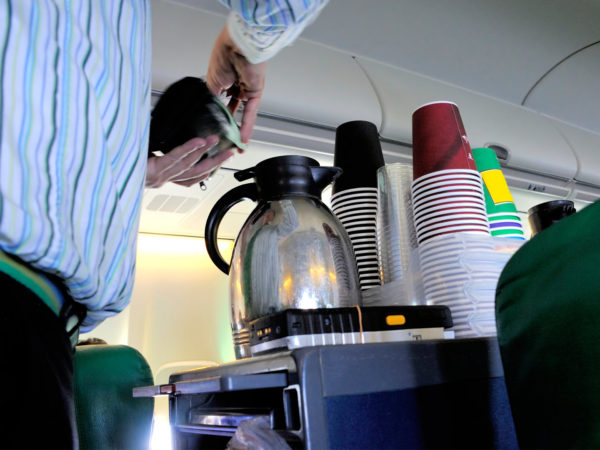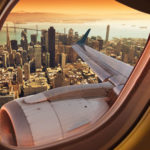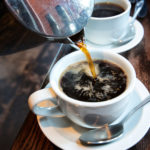Is Airplane Water Too Dirty To Drink?
I was told you should never drink coffee on airplanes because it is often made with dirty water. True?
Andrew Weil, M.D. | December 1, 2017

You raise a troubling question. The history of this issue goes back to 2004, when the U.S. Environmental Protection Agency (EPA) tested water samples from 327 planes and found that 15 percent contained coliform bacteria. This result suggests that other potentially harmful bacteria might also be present. The most recent EPA data from tests conducted in 2012 showed that water from 12 percent of planes analyzed had at least one positive test for coliform. That’s discouraging. The EPA requires that every airplane’s water be tested annually for coliform bacteria and specifically for E. coli (a coliform bacteria that is more likely to make you sick). If a test is positive, the airline is required to flush the plane’s tanks and have the water retested.
The problem appears to originate with the hoses that feed water into and out of airplane water tanks. These have been described as dirty and clogged with mold. An Irish study published in 2015 collected and analyzed 154 water samples from two airplanes and found that water on the aircraft making long-haul flights was significantly more contaminated than that on the plane making short-haul flights. Here, the source of the problems turned out to be the vehicles that transported water to the planes. The team identified 37 bacterial species in the water tested but concluded that these bugs posed no danger to most people, although some did have the potential to cause illness in immunocompromised individuals.
If you ask for water on a flight, you’re most likely to get a bottle from the beverage cart. Most airlines however, do use water from the planes’ tanks to make tea or coffee.
Reportedly, the EPA has received no information about people getting sick from drinking coffee or tea on planes, but that doesn’t mean much since passengers who get sick after a flight may not make the connection to beverages they drank on the plane or with water they used in restrooms to wash their hands or brush their teeth. Healthy people are unlikely to get sick by drinking a cup of coffee or tea made with tap water on planes. It is probably not wise to use airplane tap water to fill a baby’s bottle, and those with a compromised immune system probably should avoid airline tea or coffee.
News reports about this problem often quote members of flight crews who say they won’t drink coffee or tea made on board with water from the plane’s tanks. I’ve read that the Association of Flight Attendants-CWA doesn’t believe the EPA water testing regulation is sufficient enough to address the issue.
Andrew Weil, M.D.
Sources:
Harald Handschuh et al, “Bacteria that Travel: The Quality of Aircraft Water,” International Journal of Environmental Research Public Health, October 2015, doi:10.3390/ijerph121113938
NBC 5 Dallas-Fort Worth, “EPA Tests Show “High” Percentage of Airplanes Still Have Bacteria in Water Served On-Board.” nbcdfw.com/investigations/EPA-Tests-Show-High-Percentage-of-Airplanes-Still-Have-Bacteria-in-Water-Served-On-Board-226813491.html#ixzz4nmWT2xYM











